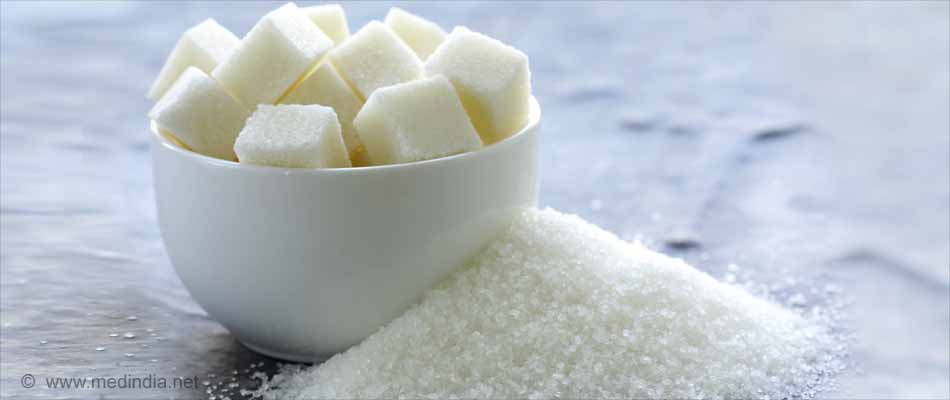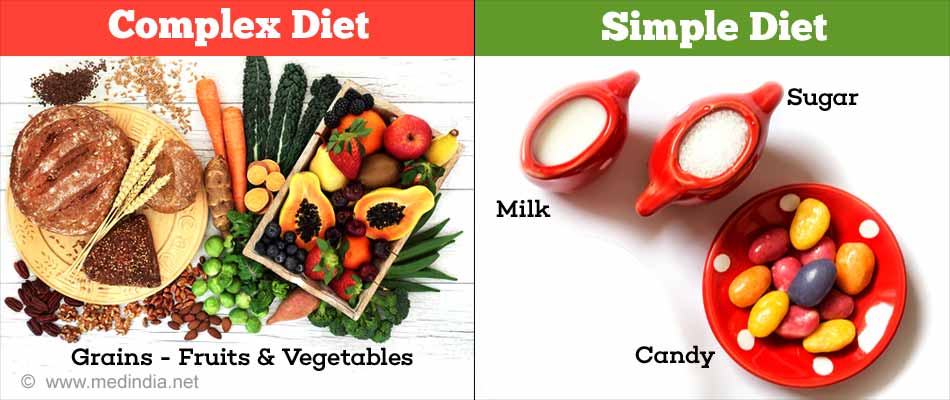About
How different is an athlete’s diet from any other person’s eating habits? Is there a special diet to enhance athletic performance? Perhaps these questions race through our minds while watching athletes energetically dashing across playing fields or TV screens—be it track events, soccer, basketball, cricket, hockey or swimming. Let’s take a look at how much and how many carbohydrates an athlete needs to include in the diet each day to stay on top form for peak performance.

Based on research, an adult athlete requires 5 to 7g of carbohydrate per kilogram body weight while an individual requires 7 to 10g of carbohydrate per kilogram body weight and every gram of carbohydrate produces 4 calories of energy. Such a large amount of carbohydrate is required by an athlete because it plays several key roles in the body likeproviding energy for working muscles, the central nervous system, enhancing the metabolism of fat for energy production and preventing protein from being utilized for energy. These functions are directly related to the performance of an athlete.
About 50 to 60% of calories in the diet must be from carbohydrate sources. One gram of carbohydrate provides 4 calories of energy. The carbohydrate requirement for men and women is between 200 and 300 grams per day. For an adult looking to restrict carbohydrate intake, 120 grams per day is the accepted minimum. For children the requirement is between 100 to 200 grams per day.
Carbohydrates are found in food sources such as grains, fruits, milk and its products. Vegetables contain a small amount of carbohydrates. After digestion carbohydrates enter the blood stream in the form of glucose and glucose that is not utilized is stored as glycogen in the muscle tissues and liver. During exercise the blood glucose is utilized first and only next the glycogen stores are tapped into.
Glucose is the exclusive energy compound for the central nervous system because it fuels our nerve cells. Dizziness, weakness, physical and mental fatigue are experienced when there is a lack of carbohydrate during exercise because of the low levels of glucose.

However, the body can store only 2000 calories worth of glucose in the form of glycogen and this is the reason why carbohydrate is known as the limiting fuel in physical performance.
Protein sparing action of Carbohydrates
The glycogen stores in the body are depleted during exercise, if glucose is not available. If carbohydrates are unavailable the body breaks down the protein to produce energy. This is detrimental because the protein ceases to serve its primary function of muscle building and also excess breakdown of protein in the body can lead to nitrogen production which may cause a stress on the kidneys.
Simple and Complex Types of Carbohydrate in the Diet
Carbohydrate foods are the primary source of energy for the body. Carbohydrates can be classified as simple and complex.
Simple carbohydrates in the diet are easily broken down in the body and absorbed. They also have a smaller chemical structure than complex carbohydrates. Lactose, sucrose and galactose are the simple sugars. On consuming simple sugars there is a rapid increase in energy production but only for a short period of time. Examples of food containing simple sugars are candy, soda, sugar and milk.

Complex carbohydrates in the diet take much longer to be digested in the body. Owing to the slow digestion the release of glucose to the blood stream is much slower. This property is more beneficial for an endurance athlete because the energy is released slowly over a longer duration of time when compared to energy from simple sugars. Examples of complex carbohydrates are bread, pasta, grains, fruits and vegetables. The fiber components in these foods are what cause slow digestion.
How much Carbohydrate is needed Pre, During and Post Workout?
Carbohydrate requirements for an individual vary for different sports. An endurance event will require more energy than a short duration event. The type of carbohydrate to be given can be determined by its glycemic index.
What is Glycemic Index (GI)?
Foods on consumption raise the blood sugar to different levels. The degree to which the consumed carbohydrate increases the blood glucose level is known as glycemic index. The structure of the carbohydrate and the size of the food particle can have an impact on glycemic index. A simple carbohydrate will have a higher glycemic index than a complex carbohydrate. If the carbohydrate is also a rich source of fiber (e.g. most fruits and vegetables) or if it is consumed along with fiber like whole wheat, the glycemic index will be low, as the release of glucose into the blood post digestion will be slow. Very simply put, refined carbohydrates like white flour, rice, ready to eat cereals have a very high GI while carbohydrate foods with high fiber, high protein and high fat foods have a lower GI.
| Glycemic Index (GI) | Food |
| Low GI | Multigrain breads, brown rice, egg, fish, meat, chicken, prunes, figs, milk, most fruits and vegetables except potato, watermelon, sapota, grapes |
| Medium GI | Whole wheat, sweet potato |
| High GI | Sugar, chocolate, rice flakes, rice Crispies, white rice, potatoes, white bread |
The choice of carbohydrates for exercise varies based on the GI of the chosen foods. Before beginning exercise it is important to consume carbohydrate to optimize glycogen stores. Two to four hours before exercise an athlete can consume a meal rich in complex carbohydrates and low in protein and fat. Ideally 65 to 125g of carbohydrate can be consumed. Foods like a vegetable sandwich with whole grain bread or a cup of yoghurt with fruit or a cup of pasta can be eaten 2 to 4 hours before exercise.
One to two hours before exercise a fruit like banana or pomegranate or crackers with peanut butter or cheese will help elevate the glycogen levels without causing the athlete any discomfort.

30 minutes before exercise liquids are recommended and if thirsty, a few sips of sports drink can be taken right before the exercise.
During exercise carbohydrate stores in the body have to be replenished especially for events lasting longer than 90 minutes. For endurance events carbohydrate must be consumed 30 minutes into the event. Dry fruits, banana, sports gels and drinks are good options.
After exercise most people neglect carbohydrate and focus more on protein. Consuming a moderate amount of carbohydrates within 30 minutes of completing the exercise optimizes glycogen stores. Research has shown that protein utilization in the body is more effective when taken along with carbohydrate.
Recent Trends in Carbohydrate Requirements for Physical Activity
There is no doubt that carbohydrates are an essential source of energy for an athlete to perform well. There is evidence of the benefits of carbohydrates on exercise lasting longer than 90 minutes. However, some studies have also showed good performance in endurance activity after adapting to a low carbohydrate diet. But if it is a short duration intense exercise like sprinting, studies have shown that performance suffered on a low carbohydrate diet.
Research has largely been based on requirements of adult male athletes and there has been much less focus on child, adolescent and the adult female athlete. It is known that the metabolism of fat is rapid during the growing years and the energy yield is more and this has caused some confusion if fat can be replaced by carbohydrate in a young athlete’s diet plan. In comparison to carbohydrate one gram of fat provides double the amount of energy i.e. nine calories.
When planning a diet for an athlete, carbohydrates should be moderated whether in the form of food or sports drinks based on the 5-7g/kg body weight or 7-10g/ kg body weight requirement for adults or the 6-9 g/kg body weight for male children and 3-5.5 g/kg body weight for female children. As every individual’s physical and metabolic make up is different, carbohydrate should be given depending on the body’s response to the diet and also its impact on training.

It has been established that carbohydrates provide energy for day to day activities and also for exercise. There is a wide range of carbohydrate foods to choose from, depending on the athlete’s needs. While making food choices fiber content, glycemic index, type of sugar and time of consumption must be taken into consideration for the best results on the field.












